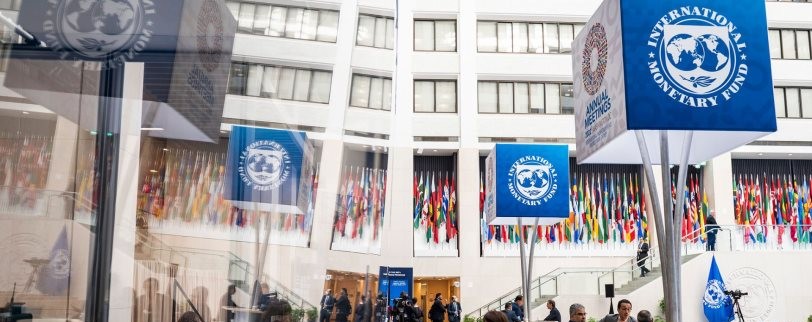(3 Minutes Read)
The IMF noted that “economic activity is expected to pick up but remain modest” in FY2025- 26, reflecting the complex challenges Egypt continues to face.
The International Monetary Fund (IMF) has outlined the key factors affecting Egypt’s economic outlook in its latest Regional Economic Outlook, noting that slower-than-expected progress on structural reforms, compounded by ongoing geopolitical tensions, has dampened growth prospects for 2In April, the IMF revised its forecast to 4.3%, up by 0.2 percentage points from January, marking Egypt as one of the few countries to see growth in the region.
The IMF noted that “economic activity is expected to pick up but remain modest” in FY2025- 26, reflecting the complex challenges Egypt continues to face. These include the strain of regional instability, particularly the conflict in Gaza, and its cascading effects on neighbouring countries like Jordan, which have worsened Egypt’s economic conditions.
Additionally, a heavy debt service burden is further complicating Egypt’s efforts at fiscal consolidation, which were already under pressure due to the lingering effects of the COVID-19 pandemic.
The significant drop in Suez Canal revenues, which saw a loss of around USD 7 billion (approximately EGP 350 billion) in 2024, has strained Egypt’s fiscal revenues, contributing to a widening of the current account deficit. The IMF notes that these regional spillovers have also suppressed exports, further complicating Egypt’s economic recovery.
Despite the setbacks, the IMF highlights a projected partial recovery in Suez Canal receipts, with the Egyptian government’s draft budget estimating a rise to USD 6.3 billion for FY2025/2026, up from an estimated USD 3.7 billion this year.
At the same time, rising debt service costs, now expected to exceed 9% of GDP in FY2025/2026, continue to widen Egypt’s fiscal deficit. Although Egypt has managed to maintain a higher primary surplus through tighter fiscal controls, this surplus still falls short of initial projections, signaling the ongoing strain on the country’s finances.
The IMF also raised concerns about Egypt’s debt sustainability, particularly as the country will likely need to refinance maturing debt at higher yields, alongside other regional economies such as Tunisia, Jordan, and Pakistan.
The report notes that gross public financing needs across emerging markets and middle-income countries in the region are projected to rise to USD 263 billion in 2025, up from USD 249 billion in 2024, with further increases expected in the coming years.
Read Also:
https://trendsnafrica.com/egypt-gets-usd-1-2-billion-under-eff-facility-of-imf/
To address these fiscal challenges, the IMF recommends that Egypt accelerate structural reforms, particularly expanding the tax base and reducing risks associated with state-owned enterprises. On the monetary front, the IMF advises maintaining high interest rates until inflation is clearly under control while continuing to work on developing a formal inflation-targeting framework. Despite these challenges, the IMF’s report also points to some medium-term optimism for Egypt.





